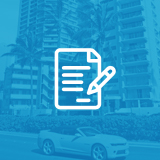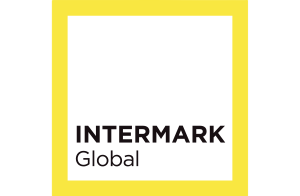Residence Permit in Italy for Financially Independent Individuals
Permesso di Soggiorno per Residenza Elettiva
Italy is ready to host foreigners who want to live in the country and at the same time can provide themselves without working. It's not just about retirees (although about them too). People of any age with sufficient passive income can move to Italy. For wealthy foreigners there is a special type of residence permit: "Residence permit without the right to work", "Сhosen place of residence", "Residence permit for financially independent persons" or "Residenza Elettiva". These are all synonyms for the same status.
Program's details
- €31,000 per year minimum passive income
- No investment no capital investment required
- Accommodation in Italy purchase is not necessary, rent is enough
- For the whole family including children over 18 and parents
- Life in italy all year round and in any region
- Without the right to work and business activity
- Visa-free travel across the EU countries
- Italian citizenship after 10 years
The official website of the program

-
About the Program
In 1999, the President of Italy signed Decree No. 394, which secured the right to apply for a residence permit for foreigners on the basis of "chosen place of residence" (in Italian, Residenza Elettiva). In fact, this is a long-term immigration visa for wealthy people who intend to stay in Italy for a long time or permanently. Bonuses: the ability to travel to Schengen countries without a visa.
This type of residence permit has a number of specific limitations. First, there is no right to work and conduct business in the country. At the same time,you may be a rentier and receive passive income from real estate around the world, including in Italy, it is not prohibited. Secondly, the right to social insurance and free medicine does not apply to this kind of visa. It is believed that an applicant for such a residence permit should be sufficiently secured and not to use this benefit. Thirdly, Residenza Elettiva cannot be "converted" into another type of residence permit (i.e, if you want to do business or work in Italy, you will have to go through the immigration procedure from the beginning).
The first residence permit based on financial independence is issued for a year. Then it is extended for up to two years, and with each renewal, documents confirming passive income are provided once again.
Getting a permanent residence permit (which means saving yourself from the need for annual renewal) will not work as well. However, the time spent in Italy at Residenza Elettiva counts as the length of residence (10 years) required to obtain citizenship by naturalization. The first passport can also be kept (if your home country does not prohibit having two citizenships).
Conditions for Obtaining a Residence Permit
- Accommodation in Italy
- The law does not oblige an applicant to purchase real estate in Italy, you can conclude a lease agreement. The cost of the object is also not regulated.
- Passive income
- The minimum income level is €31,000 per year. If a spouse is included in the application, the amount increases by 20%, for each dependent child - another 5%.
Only documented legal passive income (pension, dividends, annuity, etc.) is taken into account; income from employment is not included.
The main task of the applicant for Residenza Elettiva is to convince the Italian authorities of their solvency. This means that, despite the formal absence of requirements for the cost of housing, it should be of high quality, not the cheapest one. Property owners will have an advantage over renters

-
Residence permit for family members
Together with the main applicant, a residence permit can be obtained by:
Spouse, children, including adults if they are unmarried and dependent, as well as parents. Family members are issued the same residence permit - Residenza Elettiva.
Applicants for a residence permit do not have to prove their knowledge of the Italian language, invest in the economy, create job positions or buy real estate. The main condition is sufficient passive income to support all family members.

-
Documents
Part of your documents will be required at the consulate of Italy in order to apply for a type D visa, according to which you need to enter the country; the other part of the documents will be needed in Italy, when applying for a residence permit.
- Personal documents: passport, certificates of marriage, birth of children.
- Documents for real estate in Italy (agreement of intent to purchase real estate and a certificate of payment of a deposit, purchase and sale agreement or long-term lease)
- Documents confirming passive income for the last year (rent, royalties, dividends, pension, income from bank deposits, profit from securities).
- Receipts of payment of all state fees (for issuing a type D visa, for issuing a residence permit).
- Medical insurance valid in Italy.
- A motivation letter explaining the desire to live in Italy.
Part of your documents will be required at the consulate of Italy in order to apply for a type D visa, according to which you need to enter the country; the other part of the documents will be needed in Italy, when applying for a residence permit.
Additional Expenses
- State fees
-
Up to €300 will be spent on fees for obtaining a D visa and residence permit, issuing a plastic card, postage.
- Legal expenses
-
€2,000-15,000 for the preparation of a package of documents and registration of a residence permit, depending on the prices of the law firm.
When purchasing real estate, the applicant also bears the costs associated with the transaction - state taxes, realtor's, notary's fees, registration of property in the register. Foreigners with a residence permit can receive a benefit for the purchase of their first home (Prima Сasa), and to reduce tax expenses by 2-4 times.

-
Rights and Obligations
- The owner of Residenza Elettiva can stay in Italy 365 days a year and live in any region. If he is absent from the country for more than 6 consecutive months, the extension of the residence permit may be refused.
- With an Italian residence permit, you can travel to Schengen countries without a visa and stay for up to 90 days in half a year on their territory.
- Residenza Elettiva sets restrictions on employment and business activities in Italy. In this case, you can receive passive income, for example, from renting out real estate.
- This type of residence permit does not give access to social insurance and free education and medicine, but its holders can visit clinics on a paid basis, with insurance.
- The holder of this residence permit becomes a tax resident of Italy, i.e. must pay taxes on the income from everywhere else in Italy. At the same time, Italy has signed agreements on the avoidance of double taxation with dozens of states.
- This residence permit allows you to receive a discount on the purchase of the first real estate, simplifies access to credits in Italian banks, and allows you to purchase a car.
- Residenza Elettiva is regularly updated, conversion to another type of residence permit is not allowed. After 10 years of residence in the country, you can apply for citizenship.
The procedure for obtaining





